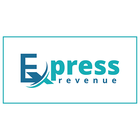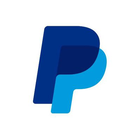
Express Revenue Affiliate Network
Payment Options Supported by Express Revenue
PayPal
With Express Revenue you can recive your payments via PayPal. PayPal is one of the first payment methods that made it possible to transact online. PayPal was launched in 1998 and quickly grew to one of the most used payment methods online. Today, Paypal is used by 180 million people and operates in 202 countries with 22 different currencies across the globe. With only an email, you can register for a free account to send and receive money internationally. You can also attach your credit card to your account so that you can send money back and forth from your bank and PayPal account.
Cheque
With Express Revenue you can recive your payments via Cheque. A cheque, or check, is a document that order banks to pay out the specified money to your bank account. The cheque will be issued to you via physical mail, and arrive at your door. You will then have to take it to your local bank to clear it to receive your money.
Pricing Models Supported by Express Revenue
CPS (Cost Per Sale)
Express Revenue supports CPS offers. Cost Per Sale (CPS) is the amount an advertiser pays for converting a sale. Cost Per Sale is calculated as follows: advertisement cost/number of sales = Cost Per Sale (CPS). As an affiliate, it represents the amount you will get paid for converting a sale for an advertiser in an affiliate program or network. CPS for affiliates is also sometimes mentioned as PPS (Pay Per Sale).
CPA (Cost Per Acquisition)
Express Revenue supports CPA offers. Cost Per Acquisition (CPA) is a marketing metric for measuring the cost of acquiring a paying customer, or for a user to perform an action. CPA is sometimes referred to as Cost Per Action. As an affiliate, the CPA model will simply be a flat rate that you will receive when the task required is performed. This can be anything from a user filling out a form, making a purchase or downloading a free game. If you are on the other side, as an advertiser, the CPA model can determine the actual cost of each customer acquired in combination with other pricing models such as CPC (Cost Per Click). To derive the Cost Per Acquisition of a CPC campaign it would have to be calculated as follows: Campaign Cost / Conversions = Cost Per Acquisition.
CPL (Cost Per Lead)
Express Revenue supports CPL offers. Cost Per Lead (CPL) is the amount an advertiser pays for converting a lead. Cost Per Lead is calculated as follows: advertisement cost/number of leads = Cost Per Lead (CPL) As an affiliate, it represents the amount you will get paid for converting a lead for an advertiser in an affiliate program or network. CPS for affiliates is also sometimes mentioned as PPL (Pay Per Lead). The most commonly used CPL offers would be, email opt-in, but the pricing model is also used for free to play games, freemium software, and general customer leads.
Express Revenue Payment Schedule
Net 15
Express Revenue send their payments on a Net 15 basis.
Net 30
Express Revenue send their payments on a Net 30 basis.
| Pricing Model: | CPS, CPA, CPL |
| Payment Option: | PayPal, Cheque |
| Payment Schedule: | Net 15, Net 30 |
| Available Support: | |
| Payment Threshold: | $50.00 |
FellowAffiliate's Affiliate Network Profiles are provided solely to assist you in exercising your own best judgment. FellowAffiliate asks third parties who publish complaints, reviews and/or responses on this website to affirm that the information provided is accurate. However, FellowAffiliate does not verify the accuracy of information provided by third parties. Some information found within the Affiliate Network Profiles is generated through the connection with external API's. FellowAffiliate asserts no control over these API's and does not guarantee the accuracy of any information in the Affiliate Network Profiles. FellowAffiliate's Affiliate Network Profiles covers a life-time reporting period and are subject to change at any time.
Share this article on your favorite social network
Facebook Twitter Linkedin Reddit


